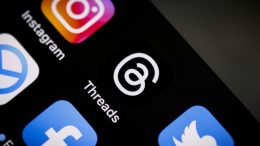To put it plainly, when it comes to dealing with online abuse, Twitter sucks. Everyone seems to know that, including company CEO Dick Costolo, who stated as much in an internal memo acquired by The Verge in advance of Twitter’s earnings call Thursday.
According to the site, Costolo made the comment in response to a question about the torrential online attacks aimed at writer Lindy West.
Costolo’s response was surprisingly blunt:
We suck at dealing with abuse and trolls on the platform and we’ve sucked at it for years. It’s no secret and the rest of the world talks about it every day. We lose core user after core user by not addressing simple trolling issues that they face every day. I’m frankly ashamed of how poorly we’ve dealt with this issue during my tenure as CEO. It’s absurd. There’s no excuse for it. I take full responsibility for not being more aggressive on this front. It’s nobody else’s fault but mine, and it’s embarrassing. We’re going to start kicking these people off right and left and making sure that when they issue their ridiculous attacks, nobody hears them. Everybody on the leadership team knows this is vital.
The candid response was refreshing, given that tech executives often get expert training in glossing over their company’s failings, even in internal communications. Costolo owning up to the failure looks like a positive step. Too bad he didn’t actually offer any concrete steps to actually deal with the matter.
How Twitter Tries…
Twitter hasn’t totally ignored harassment on its platform. Unfortunately, its actions have done little to mitigate the problem.
See also: Twitter Might Finally Be Getting Serious About Online Harassment
In November, the company announced a partnership with Women, Action & the Media to address gender harassment. In December, Twitter changed several of its policies to ease the previously cumbersome abuse-reporting process. Now, anyone can report abuse, not just the victims. These were important, long overdue steps, but they weren’t full-fledged solutions. Users, like legal analyst, journalist and podcast host Imani Gandy, still find it necessary to use third party measures like BlockBot:
blocktogether is the only reason I'm still using Twitter. @myownpetard @blocktogether
— Imani Gandy (Orca’s Version) ⚓️ (@AngryBlackLady) February 5, 2015
One of the main challenges Twitter has is the ease with which people can sidestep its abuse-blocking tactics or tools. If a user gets blocked or banned, he or she can simply make a new account and continue to spew hatred. For a network spanning 288 million users, the company simply can’t police it all, not with its current policies.
…But Can’t Stem The Abuse
The harassment problem goes back years. In 2011, a religious leader was harassed to the point of not leaving her house for 18 months, fearing for her life. Two years later, a British woman received scores of threatening, explicit tweets for advocating more women appear on British money. Athletes regularly receive death threats based on their performance.
Recently, the GamerGate movement has heaped new levels of abuse on anyone the amorphous group perceives as a threat—especially women in the video game industry. Feminist Frequency founder Anita Sarkeesian, whose video web series examines the portrayal of women in pop culture, is a key GamerGate target. Sarkeesian started her project more than two years ago and has been met with daily harassment since. She recently published a list with a week’s worth of the Twitter abuse she receives, clocking in at 157 hate messages. Extrapolate that out, and the result is a rather huge pile of hatred.
Robin Williams’ daughter, Zelda, found herself on the receiving end of death threats and other Twitter attacks after her father’s death earlier this year. The swirl of abuse even forced the grieving younger Williams off the network at one point.
In response, Del Harvey, Twitter’s vice president of trust and safety, said, “We will not tolerate abuse of this nature on Twitter,” and made a few vague promises of reform. That was in August of 2014. While some changes have been made, they’ve barely made a dent in the addressing the problem.
Costolo’s pointed acknowledgement may be a sign that the company is finally ready to get serious about dealing with the misogyny, rape and death threats, and other vile attacks that still to flood its network. Or maybe the admission will simply be yet another tidbit piled onto the mountain of evidence pointing to one thing—that Twitter is incapable of protecting its users.
Photo by Roshan Vyas.





















